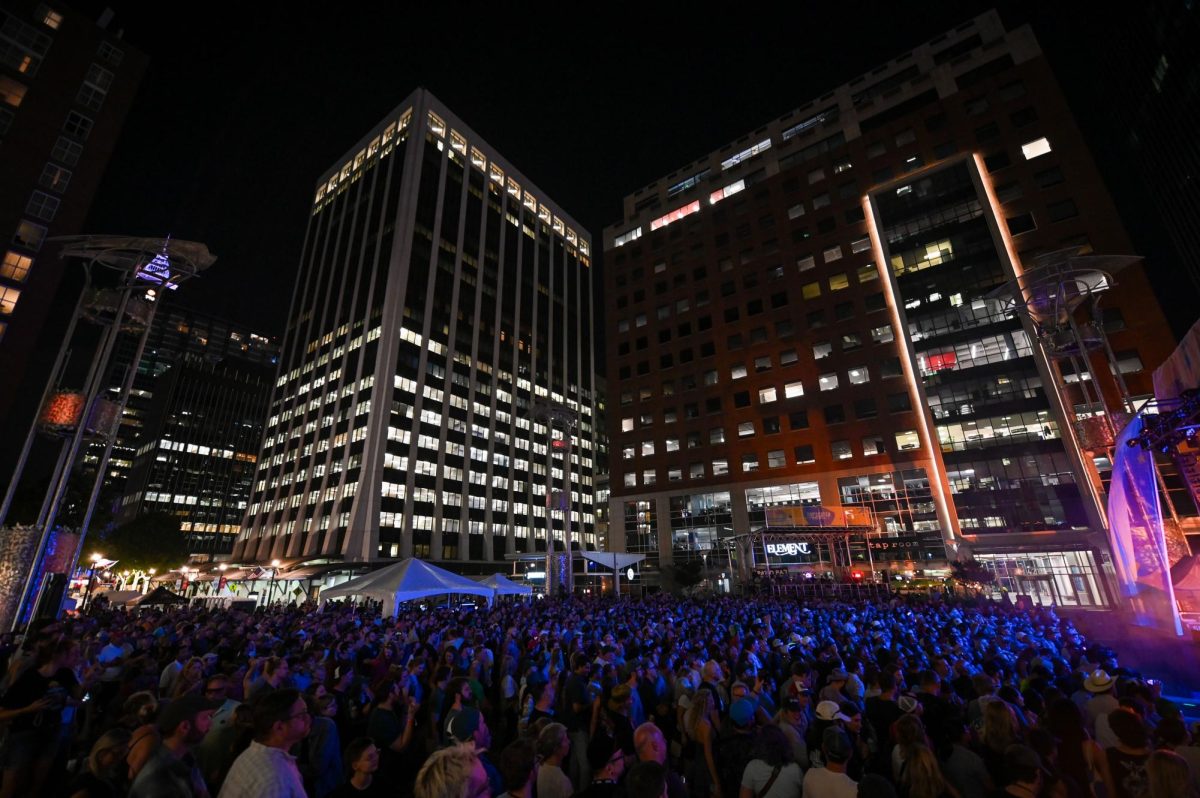In just 17 days, 30 consecutive years of political reign came crumbling down, leaving Egyptian president Hosni Mubarak as ex-president and the country under military rule. Anti-Mubarak Egyptians profess their freedom three decades after Mubarak took office, with Egypt is on its way to democracy.
This series of head-swirling events found their way across the Atlantic Ocean and onto campus, hitting home for many students. Some have ventured to the country in the past, while others had their eye on Egypt for the upcoming Spring Break, leaving the Middle Eastern country rooted in the hearts of many students.
Amanda Eads, a senior in English, language, writing and rhetoric, and president of the Middle Eastern North African Student Association, found herself following every facet of the protests from day one.
“After living in Cairo last summer, the people were the largest thing weighing on my mind throughout the protests,” Eads said. “I would watch the news on TV and Al-Jazeera live streaming and see the places I have visited and know that I walked the same streets with all those people.”
The demonstrations abroad have sparked discussion among concerned students in both the classroom and casual conversation. Even courses such as Global Politics have revamped their syllabus to study the political developments in Egypt’s pursuit for democracy.
“Through the duration of the protests, quite a few of us who lived together in Egypt last summer would get together and talk about how proud and excited we were about all that was happening, how much we wanted Mubarak to resign and, of course, we spent quite a bit of time discussing U.S. foreign policy,” Eads said.
Others came close to walking the same streets as Eads and her study abroad peers. The University Scholars Program hosts annual Spring Break trips abroad to countries such as Turkey and Greece. This year, the itinerary consisted of tours all over Cairo, Luxor and Aswan – until demonstrations found momentum in Egypt.
When the severity of the protests came through the news headlines, Assistant Director of the University Scholars Program, Bengt Carlson, along with the rest of the Scholars Program, planned a new Spring Break destination with just over a month remaining before departure.
“We realized that the situation in Egypt was unlike other protests and that we would likely have to think about another location,” Carlson said.
However, the mindsets of Scholars students have not changed as quickly as the itinerary. Although the program is now going to western Turkey and Istanbul, students and faculty still feel linked to the country and people of Egypt.
“Being connected to Egypt by virtue of this trip has made us alert to the uncertainty of the people of Egypt in their hopes for the future. Immediately, we felt — and still feel — bound up in their concerns for the people and their precarious situation there,” Carlson said.
While they were just weeks away from walking alongside Egypt’s politically agonized citizens, disappointment was inevitably present among the Scholars students when notified of the relocation. Yet, thanks to timely planning, students will still find their way to other parts of the Middle East this March.
While the demonstrations in Egypt have subsided, empowerment has spread to neighboring countries such as Bahrain and Iran. Much like the rest of the world, students on campus stand by and watch this unfinished narrative in the Middle East.
“[During the Egyptian protests], the world kept turning, but it felt like I was standing still – watching and waiting,” Eads said. “I am anxious to see what happens over the next few months. Now people know they can take to the streets and make a difference. The world is watching them. They have the power for a change.”




